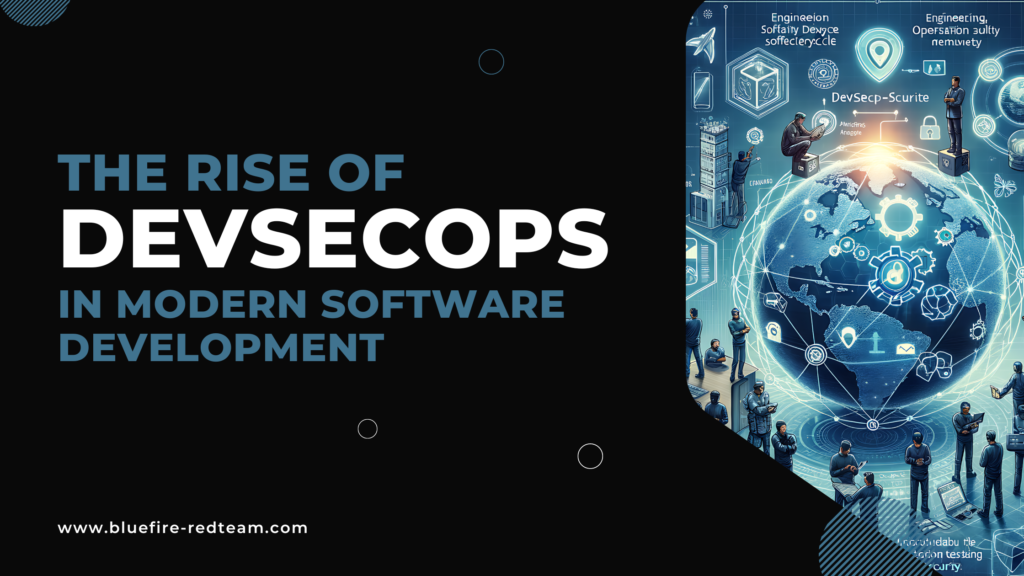In the rapidly evolving landscape of technology, security has emerged not just as a necessity but as an integral component of the software development lifecycle (SDLC). The traditional separation of development, security, and operations teams has given way to a more collaborative and integrated approach, known as DevSecOps. This approach not only emphasizes the importance of security at every stage of the SDLC but also aims to seamlessly blend it with the agility and speed of DevOps practices. Let’s embark on a journey through the realms of DevSecOps, exploring its definition, principles, benefits, challenges, trends, and how it’s reshaping the cybersecurity landscape.
DevSecOps Unveiled: A Definition
DevSecOps represents a paradigm shift in how organizations approach software development and security. By weaving security practices into the fabric of the DevOps process, DevSecOps ensures that every piece of code, from inception to deployment, is built with security in mind. It’s a proactive stance against potential vulnerabilities, leveraging continuous integration and continuous delivery (CI/CD) pipelines to detect and mitigate risks promptly. The essence of DevSecOps lies in its ability to make security an inherent part of the development process, rather than an afterthought, fostering a more robust and resilient software ecosystem.
Principles That Guide the Way
The foundation of DevSecOps rests on four cornerstone principles:
- Shift Left Security: This principle is about integrating security mechanisms early into the SDLC. It’s akin to embedding a security-conscious mindset into the DNA of every software build, optimizing not just for security, but for efficiency, cost, and market readiness.
- Holistic Automation: At the heart of DevSecOps is the push for comprehensive automation. This approach extends beyond mere coding practices to encompass the entirety of the testing and CI/CD processes, making security an inseparable aspect of development workflows.
- Continuous Security Testing: DevSecOps champions the notion of perpetual security enhancement. It views the development process as a cycle of continuous feedback and improvement, ensuring that security testing becomes a routine and crucial part of development efforts.
- Collaborative Culture & Responsibility: This principle underscores the shared responsibility for security among all stakeholders in the development process. It promotes a culture of collaboration, where developers, operations, and security teams unite in their commitment to secure software delivery.
The Multifaceted Benefits of DevSecOps
Adopting DevSecOps brings a plethora of advantages. It significantly reduces the risk of security breaches by addressing vulnerabilities at the earliest stages. Moreover, it ensures compliance with industry standards, thereby safeguarding the organization’s reputation and customer trust. DevSecOps also facilitates faster time-to-market by integrating security into the CI/CD pipeline, eliminating costly delays caused by late-stage security fixes.
Navigating the Challenges
While the benefits are substantial, integrating DevSecOps into existing processes is not without its hurdles. Organizations often face challenges related to tool selection, automation complexities, and fostering a culture conducive to collaboration and shared security responsibility. Overcoming these challenges requires a strategic approach, centered around education, tool integration, and the cultivation of a DevSecOps mindset across teams.
Tools and Technologies Powering DevSecOps
The DevSecOps ecosystem is supported by a diverse array of tools designed to automate and enhance security practices. These range from static and dynamic analysis tools to automated testing solutions and infrastructure-as-code technologies. The choice of tools is crucial, as it directly affects the efficiency and effectiveness of security integration into the development process.
Trends Shaping the Future
Looking ahead, we see DevSecOps being influenced by advanced technologies such as artificial intelligence (AI) and blockchain. AI-driven security solutions are poised to revolutionize vulnerability detection, while blockchain-centric security promises enhanced data integrity and protection. Additionally, the rise of cloud-native applications and the Internet of Things (IoT) underscores the importance of DevSecOps in safeguarding complex, interconnected ecosystems.
Real-World Impact
DevSecOps is not a theoretical concept but a practical approach that has already shown tangible benefits across various domains. From web and mobile applications to cloud-native and healthcare software, organizations are reaping the rewards of early security integration, reduced breach risks, and accelerated development cycles.
Conclusion: A Future-Proof Strategy
In the digital age, the significance of DevSecOps cannot be overstated. It offers a forward-thinking strategy that aligns with the dynamic nature of software development, emphasizing security, speed, and collaboration. By adopting DevSecOps principles and practices, organizations can navigate the complexities of the cybersecurity landscape with confidence, ensuring that their applications are not only robust and resilient but also secure by design.


